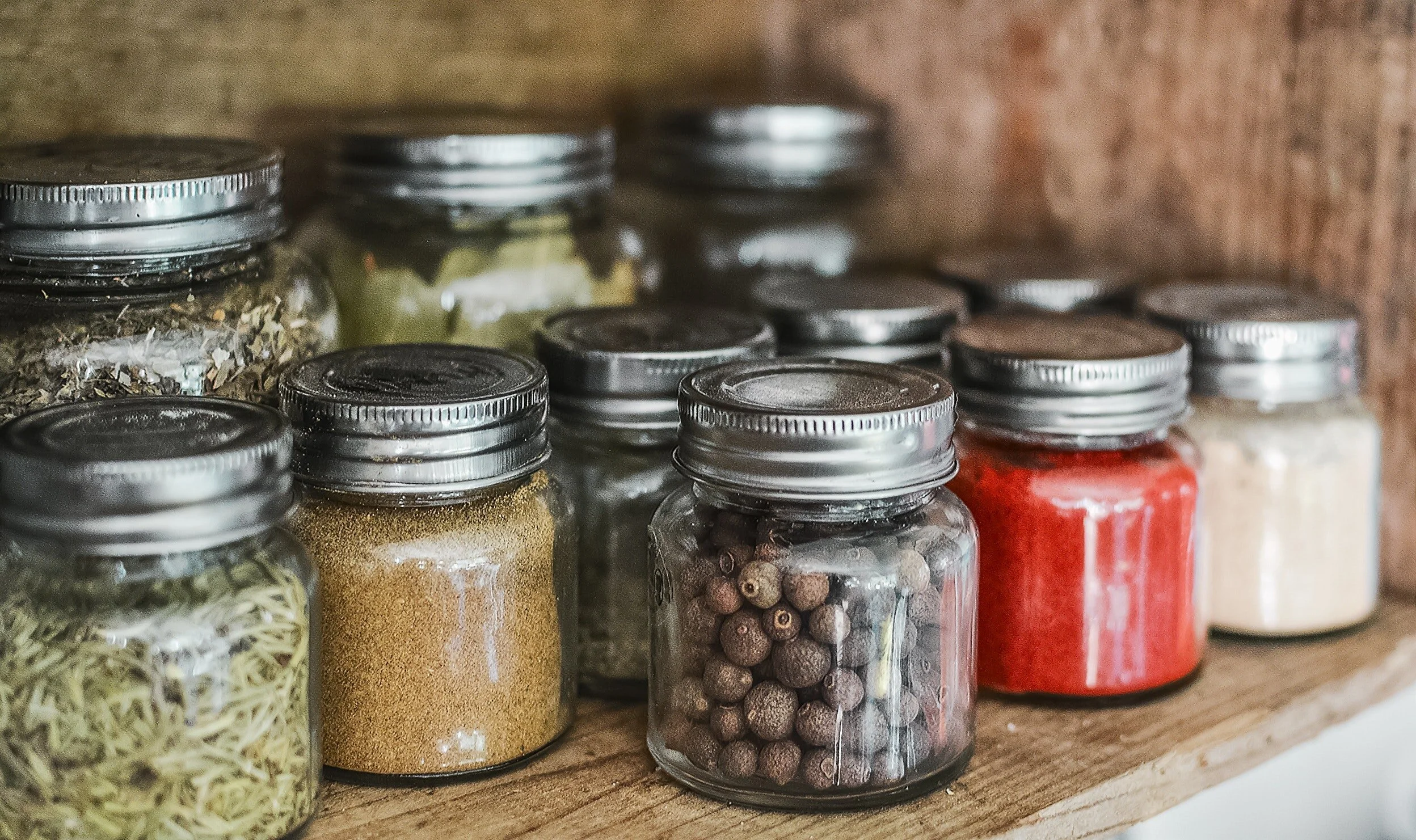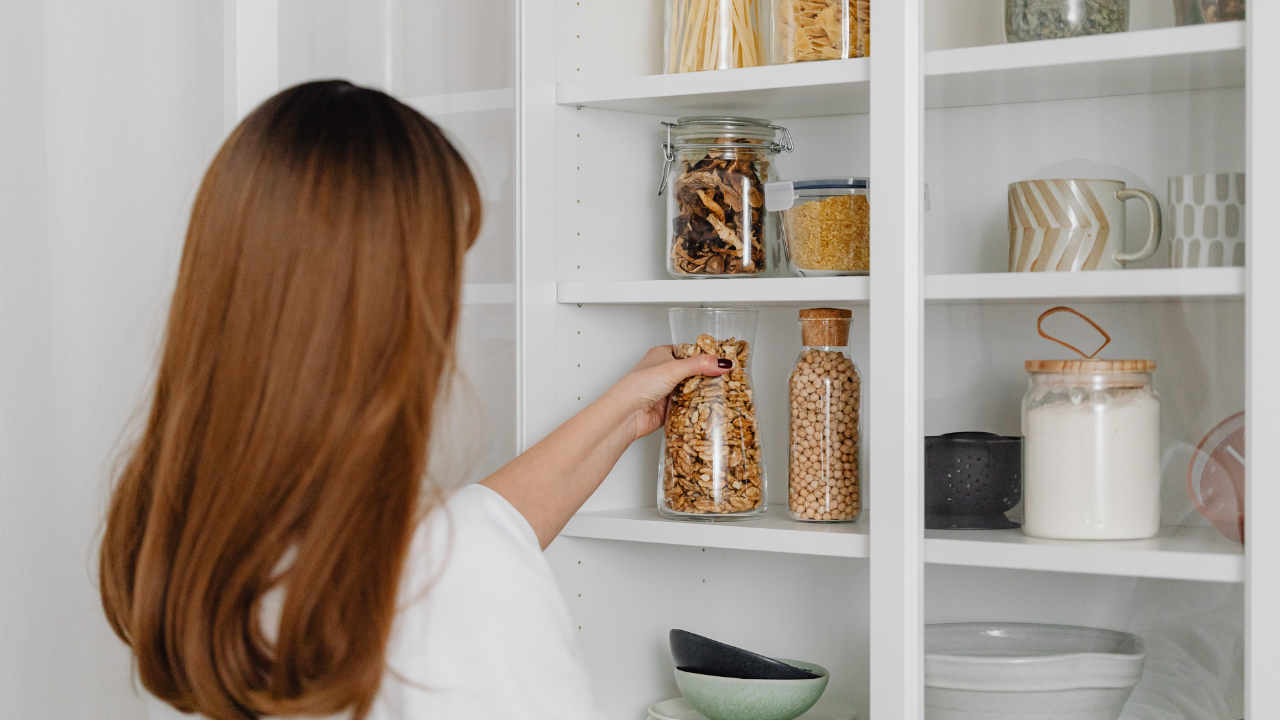Dietitian's Guide to a Healthy Well-Stocked Pantry
It’s been a wild week, and needless to say there’s been much anxiety about the current health situation.
While I am not here to dispel the current myths and misinformation, what I do want to provide are my thoughts on how to keep your kitchen stocked in case you find yourself needing to self-isolate or quarantine for a period of time.
Now that time may come, or it may not, and I will say there is no sense in panicking now or “hoarding up.” Please do not buy copious amounts of food, supplies and products for yourself, leaving nothing behind for the rest of us.
Rather than stressing, let’s focus on how to stay healthy and keep others healthy too!
This includes:
Personal hygiene: washing hands, coughing into your elbow, avoid touching your face/ nose/ ears, and limiting personal contact
Stress management: meditation, yoga, positive thinking & spending time with others
Nutrition: eating a balanced diet (more on that below..)
Sleep: at least 7 hours per night
Moderation: limit/ avoid alcohol
Let’s focus on the NUTRITION piece.
Why?
Nutrition plays a HUGE role in the health of our immune system, so I think that focusing on eating well amongst the other pieces to support our immune function should be where our energy is focused these days (rather than stressing).
When it comes to nutrition and immune function, the key nutrients include iron, vitamin A, Vitamin C, Vitamin E and Zinc. Ensuring a balanced, varied diet of whole foods can help us get these nutrients. We also want to make sure we have a balance of foods sources of all the main macronutrients – protein, fats and carbohydrates - so our body can function at its best.
So how do we stock our pantry to make sure all of our bases are covered?
Follow my list of key staples for a balanced pantry to keep you healthy:
Proteins
CANNED AND DRIED PROTEINS
We need protein to make immune system cells, give us energy, and build and maintain muscle, amongst many other functions. I always suggest stocking up on canned and dried proteins so that you have options in a pinch. This includes:
Canned: beans, chickpeas, lentils
Lentils: red or green, dried
Protein powder (whey, or vegan blend)
Canned fish (tuna, salmon & sardines) in water
FROZEN PROTEINS
Keep at least 2 of these options in your freezer, such as:
Ground chicken, turkey or lean beef
Chicken or turkey breast or thighs
Fish fillets (tilapia, haddock, sole, trout, salmon)
Tempeh and/or tofu packages
Edamame beans, whole or shelled
Do you want to go even deeper with healthy meal planning, stocking a healthy pantry, and creating a meal prep system that saves you time AND money?
Grab the ULTIMATE guide to Gut-Friendly Diet Meal Planning Mini-Course + Resource Bundle!
Starches
Starches (aka carbs) are our bodies main source of fuel. We want to choose those HIGH in fibre like whole grains because they have key nutrients like iron, B-vitamins and magnesium. Keep at least 3 of these options on hand to cook as needed:
Brown, red or wild rice
Quinoa
Buckwheat groats
Rolled or steel cut oats
Healthy Fats
Fats are also a preferred source of energy for the body, and they help add flavour to our meals. Foods higher in fats often contain Vitamin E, another nutrient that aids in immune system health. My pantry staples include:
Olive oil, for dressing & sauteeing
Avocado oil, for cooking
Chia and/or flax seeds
Whole almonds, walnuts, and/or cashews (at least 1-2 kinds)
Peanut or nut butters, natural
Tahini
Fruits & Vegetables
Fruits & veggies give us antioxidants like Vitamin C and Vitamin A (beta-carotene) that help fight off infection and prevent cell damage. Make use of frozen AND fresh varieties!
FROZEN
I always suggest having frozen fruits & veggies in your freezer as a back-up. Keep at least 3 kinds of each in your freezer:
Vegetables: broccoli, cauliflower, green beans, spinach, kale, squash, green peas, brussel sprouts, okra
Fruits: blueberries, blackberries, raspberries, strawberries, cranberries, cherries, pomegranate seeds, peaches, pineapple, mango, avocado
FRESH
There are some fruits and vegetables that keep well in your fridge and can last you a long time, such as:
Starchy vegetables: white or red potatoes, sweet potatoes, squashes
Fruits: apples, oranges, tangerines, pears
Vegetables: cabbage (red or green), turnips, beets, onions, carrots
Spices & Flavourings
In addition to above, I always suggest the following flavourings kept stocked in your kitchen. Herbs and dried spices have immune boosting properties, and add natural flavour to foods with extra sugar, salt or fats. Vinegars and lemon juice are a great way to flavour meals & salad dressings.
SPICES & EXTRACTS
Onion powder
Black pepper
Cayenne pepper
Chili flakes
Cinnamon
Cumin
Curry powder
Dried basil
Dried oregano
Garlic powder
Ginger powder
Nutmeg
Nutritional yeast
Paprika
Red pepper flakes
Salt
Turmeric
Vanilla extract
VINEGARS
Apple cider vinegar
Balsamic vinegar
CONDIMENTS
Dijon mustard
Lemons / lemon juice
Salsa
Tamari or low-sodium soy sauce
Stevia powder or liquid
Cocoa powder
Supplements
There are a couple supplements I’d suggest having on hand should you be limited in your food choices for a period of time (to make sure you are covering all your nutritional bases):
Multivitamin: If access to fresh fruits and vegetables are limited, or your diet is low in variety, taking a multivitamin CAN be helpful to make sure your bases are covered. I always suggest food first when it comes to nutrition, but if you aren’t able to have a good variety, taking a daily multivitamin can offer some benefit.
Protein powder: protein is key for immune function, so in case your other options become limited, having a supplement on hand can offer a good back-up.
Omega-3: This is a healthy fat that we need to support our immune system, brain health & mood. Our body doesn’t make it, so if we aren’t getting it from food it may be helpful to supplement. Key sources are fatty fish like salmon and trout, and omega-3 enrished eggs) Keep in mind certain medications counteract, so check with your healthcare provider first before taking them.
Vitamin D3: AKA the sunshine vitamin - Vitamin D is a key nutrient for immune function that we get mainly from sun exposure and limited foods like fatty fish, eggs and some mushrooms. If we lack in these sources, a supplement is usually necessary.
*Please keep in mind these are general supplement recommendations. If you are considering supplementation, please speak with your Dietitian, physician or other primary health care provider.
The Takeaway
There you have it – a detailed guide to stocking a healthy pantry! Regardless of the need to stay inside for a period of time, I recommend doing a grocery shop once per month to re-stock up on these key dried & frozen staples so that healthy meal prep is easy.
To ace your meal prep game, be sure to check out my Gut-Friendly Diet Meal Planning Mini Course!











